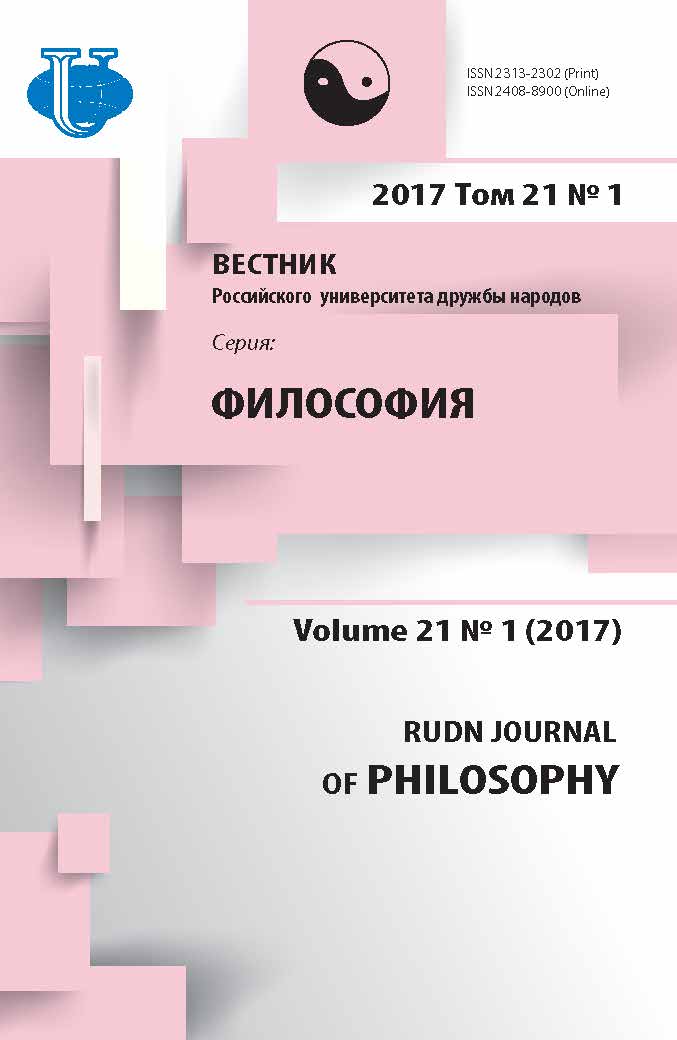Moral und Religion in der Philosophie von Wolff
- Authors: Kryshtop L.E.1
-
Affiliations:
- Issue: Vol 21, No 1 (2017)
- Pages: 17-23
- Section: Articles
- URL: https://journals.rudn.ru/philosophy/article/view/15634
- DOI: https://doi.org/10.22363/2313-2302-2017-21-1-17-23
- ID: 15634
Cite item
Full Text
Abstract
Christian Wolff, a one of the most well-known philosophers of the first half of the 18th century, is the figure quite ambiguous. In spite of the fact, that he is usually ranged chronologically among the thinkers of Enlightenment, there are researchers which find in his philosophical views some features inherent more to the scholastic tradition. But there are also the features which demonstrate Wolff as the thinker of Enlightenment. At the first it is Wolff’s striving to praise the human reason and its capacities, that comes together with the fight for its liberation and independence, among all from God. We can show it with the greatest evidence in his practical philosophy, in which he tries to deduce the natural law, which he hold for the first principle of the morality, from the human nature and to give it the justification independent from God and His will.
Keywords
Wolff, morality, religion, natural law, perfection, good, evil, virtue, God, nature, reason, understanding, will
References
Supplementary files















